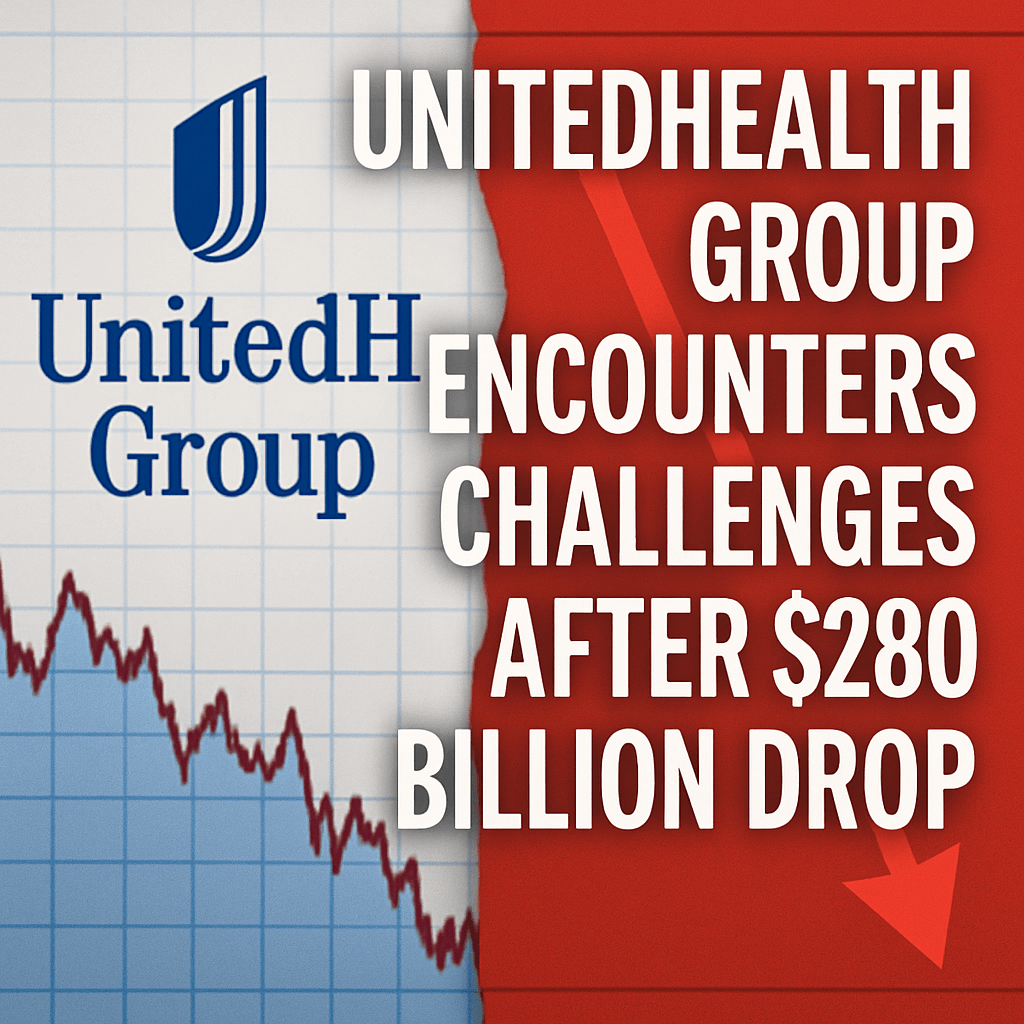UnitedHealth Group Encounters Challenges After $280 Billion Drop

Investors and analysts are currently grappling with the fallout of UnitedHealth Group’s (UHG) staggering decline in stock value, which plummeted by $280 billion in less than a month. This steep decline raises pressing questions about the organization’s internal operations, market performance, and overall stability within the U.S. healthcare sector.
A Series of Troubling Developments
The unfolding crisis began in April when CEO Andrew Witty disclosed the company’s first-quarter results, revealing alarming metrics that triggered a rapid 22% drop in stock price. Within weeks, UHG experienced further upheavals following Witty’s unexpected resignation for undisclosed personal reasons, with Stephen Hemsley re-assuming the role of CEO.
Notably, the day after Witty’s resignation, the Wall Street Journal reported that the Department of Justice (DOJ) was investigating UHG for potential criminal Medicare fraud. While UHG denied having received official notice regarding the investigation, the resulting uncertainty only added to investor anxiety, causing stock prices to plunge once more. With this confluence of events, UHG’s market capitalization saw a staggering decline of more than 50% within this short timeframe.
Identifying the Underlying Issues
Analysts are probing into multiple dimensions of UHG’s operations to identify the causes of its financial woes. One of the most pronounced areas of concern pertains to the company’s Medicare Advantage segment—a crucial revenue driver. The firm had projected healthcare utilization rates for Medicare beneficiaries to remain consistent with 2024 levels; however, actual usage soared to double that expectation.
- Medicare Advantage Sector: UHG has historically dominated this market segment, which offers comprehensive coverage beyond traditional Medicare. The unexpected increase in healthcare utilization not only jeopardized the profit margins but also raised questions regarding UHG’s forecasting methodologies.
- Patient Care Services: UHG’s care delivery business also displayed signs of distress. The company’s healthcare facilities, which incorporate a significant percentage of practicing physicians, observed a dip in patient visits for those insured outside of UHG. Analysts found this trend alarming, as reduced patient volume directly correlates with decreased profitability.
Impact of Policy Changes in Medicare
Another substantial factor influencing UHG’s future is the ongoing transformation of Medicare policies, particularly with the introduction of the new coding system, V28. This revamp aims to streamline and reduce excessive coding claims that inflate Medicare expenditures. As the largest seller of Medicare Advantage policies, UHG has benefited from its aggressive coding practices, allowing it to garner significantly higher reimbursements compared to its competitors. However, changes in the coding system pose a risk to UHG’s revenue streams.
The V28 coding system, which is being implemented over three years, is positioned to diminish the financial windfall UHG has enjoyed through meticulous disease reporting. With nearly two-thirds of the implementation phase already completed, the implications for UHG’s bottom line could be profound as the government looks to rein in escalating costs. This change could not only affect the company’s current financial health but also its strategic planning and long-term viability.
Leadership Uncertainty and Investor Confidence
Hemsley’s return as CEO introduces an additional layer of complexity. Historically, he has been a steady, if somewhat reticent, presence at the helm, but his lack of communication regarding strategic future plans could further unsettle stakeholders. Under his new contract, which includes a substantial stock options package, there is no indication that Hemsley is positioned to enact immediate transformative changes, raising further concerns about UHG’s ability to navigate its current challenges effectively.
Conclusion: The Path Forward
The turbulence engulfing UnitedHealth Group is emblematic of broader systemic issues facing the U.S. healthcare industry. Stakeholders are keenly aware that UHG’s fate may reflect not only on its own operational approach but on the validity of current healthcare policies. As UHG attempts to regain investor trust, the focus will be on its ability to address operational missteps, adapt to policy changes, and restore confidence among its patient base.
Ultimately, the situation encapsulates an ongoing dialogue about whether UHG can transform itself from a perceived villain into a trusted ally in the quest for a more equitable healthcare landscape. The upcoming quarters will be crucial in revealing the company’s resilience—or its unraveling.
“The core issue all comes down to trust,” says Whit Mayo, an analyst at Leerink Partners. “The only way Hemsley can win back UHG’s trust with investors and customers is to let performance do the talking.”